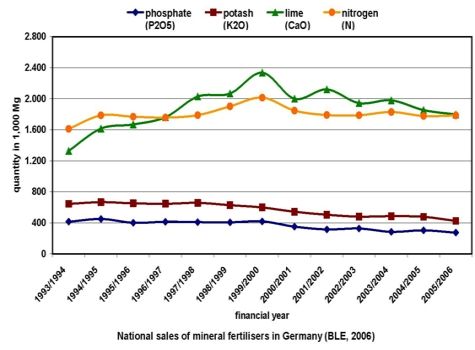Introduction
Phosphorus is in addition to nitrogen of essential importance for all biological organisms. Phosphor is a limiting factor of plant growth and thus it is a main component of every fertiliser. In this function it is not possible to renounce phosphorus because it can not be substituted. Although sewage sludge is the pollutant sink during wastewater treatment it is utilised in agriculture for the last decades to return the bounded nutrients - phosphorus and nitrogen - into the nutrient cycle.
Closing the nutrient cycle the nutrient phosphorus is a matter of particular interest of the sciences, because the phosphate reserves are - contrary to nitrogen - finite and non-renewable. The up to now noted and available phosphate ore deposits are considerably exhausted. Furthermore the amount of contaminants in the phosphate ore successively increases with progressive deposit mining. Thus, phosphorus can be categorised as a lack resource. Germany does not have own phosphate ore deposits and thus it is reliant on imports of raw phosphates. In Western Europe approx. 80 % of the raw phosphates are utilised in the fertiliser industry (JOHNSTON und STEEN, 2000). Regarding the national sales of mineral fertilisers in Germany the sales of the nutrients phosphate decreased for the last thirteen years and of the nutrients lime and nitrogen just for approx. six years.

The sales of fertiliser concerning
the nutrient phosphorus amounted to 0.18 Mio. Mg P in the financial year
1993/1994 and decreased by 34 % down to 0.12 Mio. Mg P in the financial year
2005/2006. Thus the expenditure per hectare of agricultural land (without fallow
land) was reduced from 11.4 kg P (financial year 1993/1994) to 7.4 kg P
(financial year 2005/2006)
BLE (2006): Statistischer Monatsbericht 10/ 2006 des Bundesministeriums für Ernährung, Landwirtschaft und Verbraucherschutz. Herausgegeben durch die Bundesanstalt für Landwirtschaft und Ernährung, Bonn, 2006
JOHNSTON, A.E.; STEEN, I.
(2000): Understanding Phosphorus and its Use in Agriculture. EFMA - European
Fertilizer Manufacturers Association, Brussels 2000





